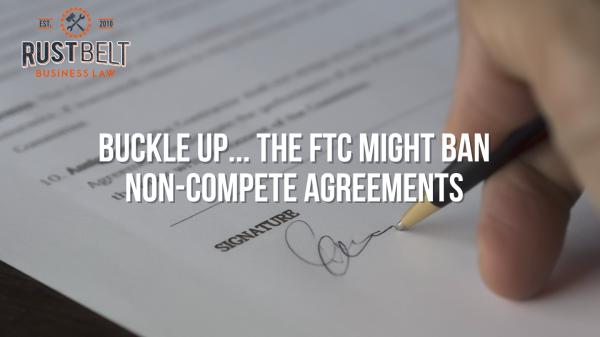The Federal Trade Commission (FTC) has proposed a rule that would ban non-compete clauses in employment contracts. Non-compete clauses are agreements that restrict employees from working for a competitor or starting their own business for a certain period of time after leaving their job.
The FTC argues that non-compete clauses are anti-competitive and harm workers. They can prevent workers from finding new jobs, starting their own businesses, and negotiating higher wages. The FTC estimates that the ban on non-compete clauses would increase wages by $250 billion to $296 billion per year.
The proposed rule has been met with mixed reactions. Some businesses support the ban, arguing that it will level the playing field and make it easier to hire and retain top talent. Others oppose the ban, arguing that it will harm businesses and make it more difficult to protect trade secrets.
The FTC is currently accepting public comments on the proposed rule. The rule is expected to be finalized in early 2024.
What non-competes do you have in place?
If you are an employer, you may have non-compete clauses in place with your employees. These clauses may restrict employees from working for a competitor or starting their own business for a certain period of time after leaving their job.
The terms of non-compete clauses vary depending on the state. In some states, non-compete clauses are enforceable if they are reasonable in scope and duration. In other states, non-compete clauses are unenforceable.
You should consult with an attorney to determine whether your non-compete clauses are enforceable.
What are you trying to protect?
As an employer, you may be trying to protect your business's trade secrets, confidential information, or customer relationships. You may also be trying to prevent employees from taking your clients with them when they leave your company.
If you are trying to protect your business's trade secrets, confidential information, or customer relationships, you should consider using a non-disclosure agreement (NDA) instead of a non-compete clause. NDAs are generally more enforceable than non-compete clauses.
What can an employer do after the rule goes into effect?
If the FTC's proposed rule is finalized, employers will no longer be able to use non-compete clauses in employment contracts. However, there are still steps that employers can take to protect their businesses.
Employers can:
- Use NDAs to protect trade secrets, confidential information, and customer relationships.
- Train employees on the importance of confidentiality and loyalty.
- Monitor employee activity to detect and prevent trade secret theft.
- Take legal action against employees who violate their NDAs or who steal trade secrets.
Let's Wrap
The FTC's proposed rule is a significant development that could have a major impact on employers and employees. Employers should carefully consider the implications of the rule and take steps to protect their businesses.




